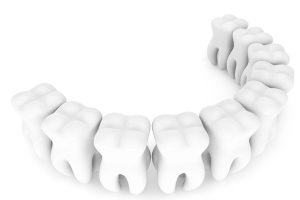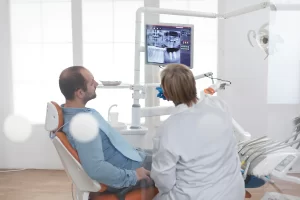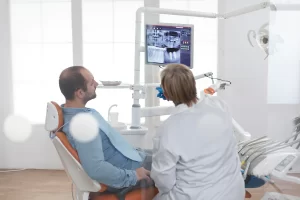7 Signs You Need Dental Implants
Dental implants have revolutionized how dentists treat patients with missing or damaged teeth. According to the American Dental Association, almost 5 million implants are placed annually in the United States, which is no surprise due to the easy availability of dental services. In Dallas, for example, the ratio between dentists and residents is 61.4 dentists to 100,000 population.
If you’re considering getting dental implants, you must be aware of the indications that you might benefit from them. In this article, we’ll discuss some signs that suggest you need dental implants and why they may be the right choice. Don’t wait until your dental health is too far gone; read on to see if dental implants are something you should consider.
Here’re Some Important Details About Dental Implants
1. You Have Missing Teeth

Dental implants may be the best option to restore your smile if you have one or more missing teeth. Missing teeth can cause difficulty in chewing and speaking and create an imbalance in your jawbone. It can lead to other problems, such as premature aging and tooth loss.
By having a dental implant, you can fill the gap with a prosthetic tooth that is nearly indistinguishable from your natural teeth. Dental implants are the most successful way to replace missing teeth and ensure a lasting, healthy smile.
However, selecting the right professional to get dental implants can be challenging. So start by looking for a reputable dentist in your area. If you live in the Dallas area, we recommend considering Dallas Periodontal Associates for your implants.
With years of experience in dental implants and periodontal care, you can be sure you will get the best treatment possible for your needs. So if you have missing teeth, don’t wait to have them replaced; contact Periodontal Associates today and get your smile back.
2. Your Teeth Are Severely Decayed
When a tooth is severely decayed, it can become weak. It can lead to fractures, chips, and other damage. In some cases, the decay can be so severe that the tooth needs to be extracted. When a tooth is removed, it leaves a space in your mouth. If left untreated, this gap can cause additional problems with your teeth and gums.
Dental implants are a great solution as they are permanent, strong, and realistic-looking. Implants look and feel just like your natural teeth, so they are ideal for restoring your smile. Plus, they help maintain the integrity of your jawbone, which is essential for proper oral health.
Your dentist can assess the extent of your decay and recommend whether dental implants are the right option for you. They may also recommend restorative procedures such as fillings or root canals before recommending an implant.
Whatever your situation, it’s important to get regular checkups and take care of any dental issues before they become serious.
3. Yor Teeth Are Cracked Or Chipped

When teeth become cracked or chipped, they can no longer be effectively repaired with a simple filling. If the damage is severe, it may be necessary to get a dental implant to replace the damaged tooth.
Dental implants are titanium screws inserted into the jawbone and fused to it, allowing them to act as replacement roots for missing teeth. It provides stability and support for the new tooth, which is then attached to the implant and functions just like a natural tooth.
Cracked or chipped teeth can cause various other problems if left untreated. Not only do they look unappealing, but they can also make eating and speaking difficult. In addition, bacteria can enter the cracks and chips and lead to further damage and decay.
If you have a cracked or chipped tooth, it’s important to seek treatment right away. The sooner you get it taken care of, the less likely you’ll need a dental implant to repair the damage.
4. You Have An Infecti

One of the most common signs that you may need dental implants is if you’re experiencing infection symptoms. These can include pain, swelling, fever, and redness in your gums. In addition, an abscess or pus may be present near the infected area.
If you’re experiencing any of these symptoms, it’s important to seek treatment from a qualified dental professional as soon as possible. Dental implants are often the best solution for treating an infection, as they help to reduce the risk of further infection by replacing damaged or missing teeth.
5. You Have Difficulty Chewing
One of the telltale signs that you may need dental implants is difficulty chewing. It can be difficult to chew and digest food properly if you have missing or severely damaged teeth. It can lead to an uncomfortable eating experience and can also contribute to digestive issues.
If you are having trouble chewing, this may indicate that dental implants are required to enhance your smile and ensure pain-free chewing. Additionally, if you avoid certain foods because they’re too hard or painful to chew, go for a softer diet and consult with your dentist about getting dental implants.
6. You Have TMJ
Temporomandibular joint (TMJ) disorder is an extremely common condition that can cause pain in your jaw, ear, and head. It can also cause your jaw to click or pop when you open your mouth. If you are experiencing any of these symptoms, it could signify that you need dental implants.
When your jaw joint is not working correctly, your jaw’s alignment can be off, making it difficult to eat and speak. Dental implants can help restore the alignment of your jaw, relieving pain and allowing for easier jaw movement. Dental implants are a permanent solution to TMJ disorder and can give you long-lasting relief from discomfort.
7. Your Dentures Don’t Fit

Dentures are a common solution for replacing missing teeth, but they can come with various problems. Dentures may not fit as securely as desired. Additionally, dentures can be uncomfortable due to their size and shape. They can also cause irritation and soreness in the gums and slip and slide when trying to eat.
Dental implants may be the better option for you if you have tried using dentures and they don’t seem to fit well or cause discomfort. Implants are surgically implanted into the jawbone and become a permanent part of your mouth, providing a much more secure and comfortable fit than dentures.
Do Dental Implants Discolor?

The answer is YES. Dental implants, like natural teeth, have an outer covering that protects and keeps them in excellent condition. Although the glaze is stain-resistant, severe damage can negatively affect it and cause it to get discolored.
What Are The Three Types Of Dental Implants?
The three most popular varieties are endosteal, subperiosteal, and zygomatic dental implants.
How Long Does A Dental Implant Last?
The only option for replacing teeth permanently is dental implants. The implant can act as a substitute tooth root. Implants can last you the rest of your life with proper maintenance. After 10 to 15 years, the tooth replacement, such as a crown or implant-supported dentures, will probably need to be changed.
Conclusion
Dental implants are a great option for replacing missing teeth or helping with severe tooth decay. They offer a permanent, secure solution that can last many years with proper maintenance and care. If you’re experiencing any of the signs mentioned above, you must see your dentist for an evaluation.
They’ll be able to assess your situation and recommend the best course of action for restoring your smile. Whether you choose dental implants or another restoration option, it’s important to take care of your oral health to ensure your smile remains beautiful and healthy for years to come
Read Also:
- 5 Tips to Keep Your Teeth White and Avoid Stains
- Benefits Of Working With A Dental Staffing Company
- Eleven Tips for Getting That Picture-Perfect Smile You’ve Always Wanted



